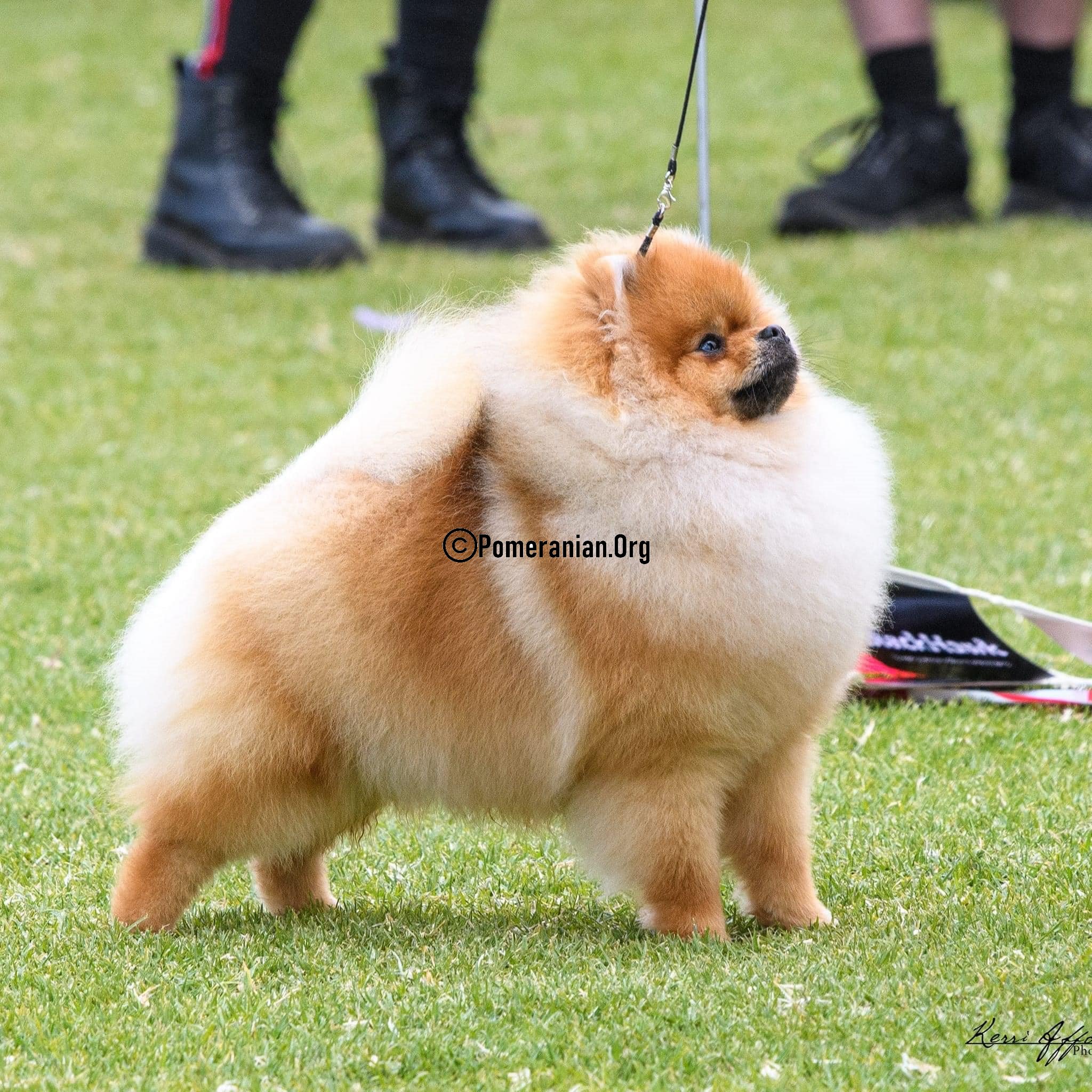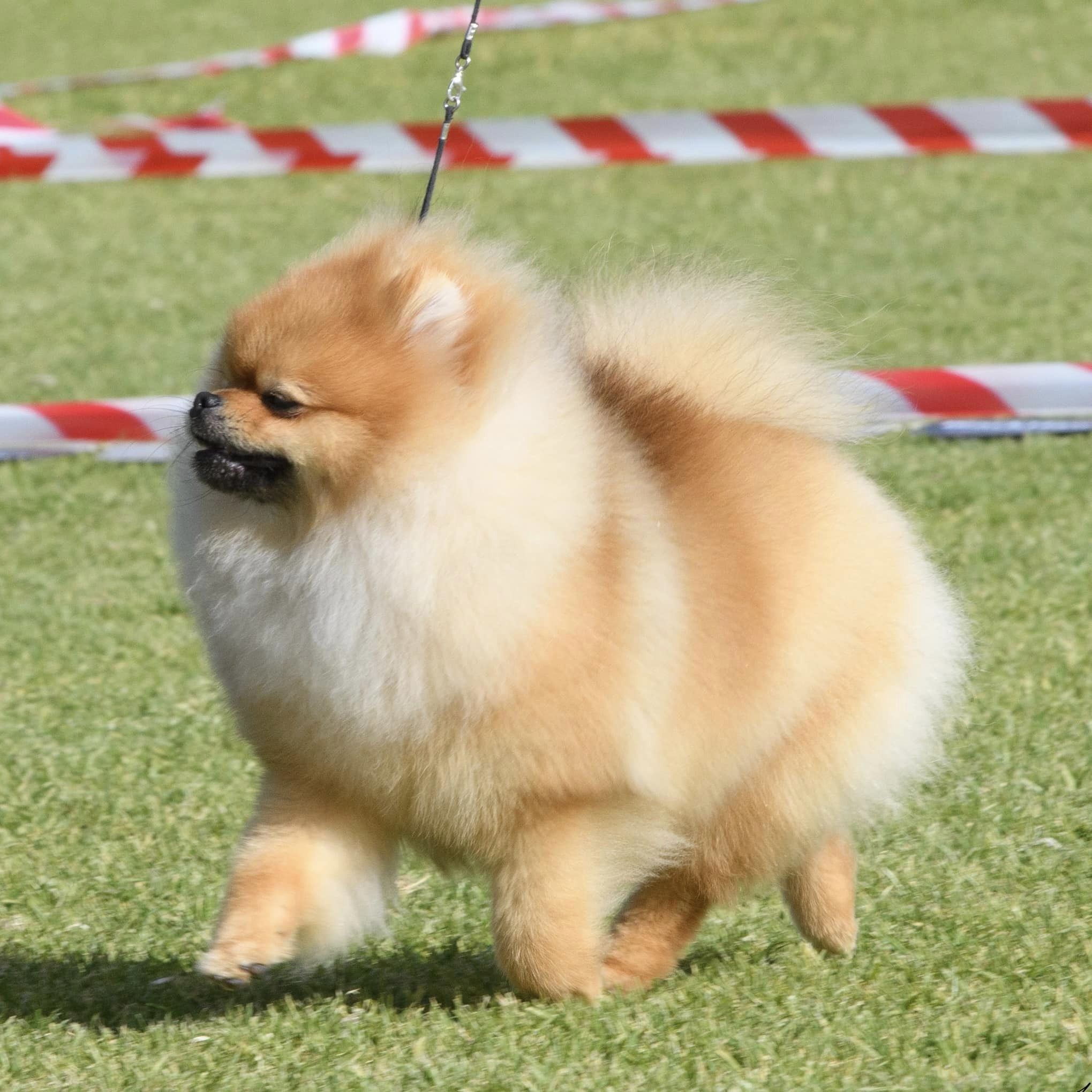Last Updated on 06/02/2023 by Dochlaggie. Post first published on February 6, 2023.
As a Pomeranian breeder of nearly five decades, I have not only seen the joy and love these wonderful little dogs bring to people’s lives but also come face-to-face with one of their health risks: hypoglycemia. In this article, we’ll explore what this condition is all about so you can help your pup stay safe and healthy!
Pomeranian hypoglycemia is low blood sugar. Low blood sugar levels affect puppies far more than adult dogs. Even if your puppy is very healthy, low blood sugar levels may still affect him. This is why it’s critical to understand the symptoms and how to manage them properly.
Tiny Pomeranian puppies (particularly toy-breed dogs like Pomeranians) have almost no fat storage. Fat is the body’s fuel, and sugar levels fall if insufficient.
Adult dogs can balance it out better because their liver creates more sugar. But puppy livers don’t have the capacity to do this, and suddenly, your tiny puppy has hypoglycemia.
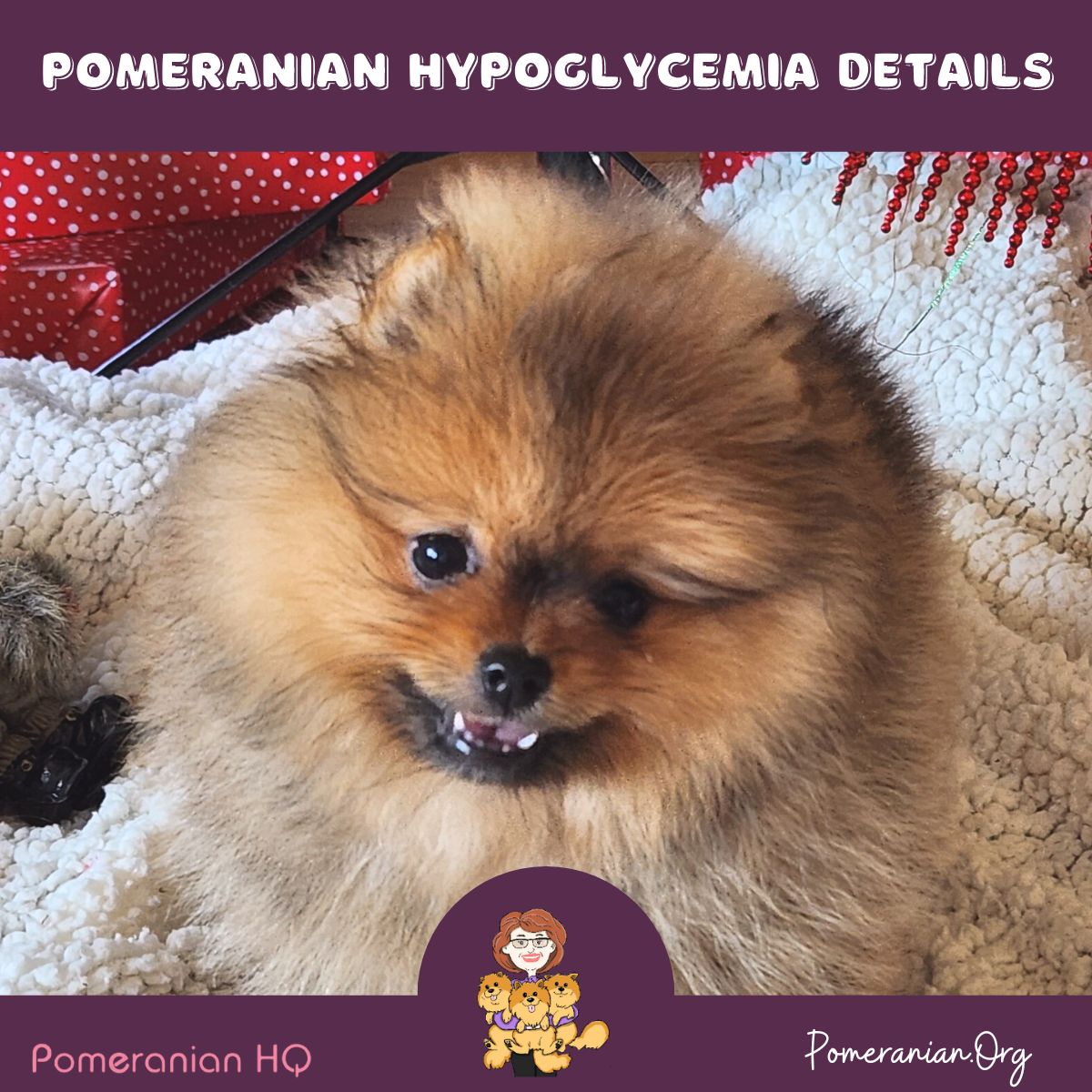
Signs of Hypoglycemia in Pomeranians
Symptoms may be pretty vague. Due to high susceptibility, you must keep your eyes out for them, particularly in a tiny puppy. Without enough sugar, your puppy’s breathing and heart rate start slowing down and causing other problems.
Watch for Pomeranian Hypoglycemia Symptoms:
- The puppy is weak or sleepy.
- He appears to be disoriented.
- He walks like he’s a little bit drunk.
- His eyes seem unfocused or glassy-eyed.
- His head tilts down to one side.
- He has seizures.
- He shivers, shakes, or trembles.
- He loses consciousness, and you can’t wake him.
Pomeranian Hypoglycemia is Life Threatening
Unless you can apply for immediate first aid, your beloved puppy may die, and the puppy loses consciousness as the Pom’s brain begins shutting down from lack of glucose. Fortunately, it’s easy to reverse the symptoms and treat hypoglycemia once you know it exists. In most cases, your puppy will react to the treatment ( restoring blood sugar level) within a maximum of 10 minutes.
However, if he doesn’t seem to settle down, get him to the vet urgently, as there may be another problem. Even if your puppy does have a “turn” but responds to the treatment given, it’s wise to get him checked by your vet to ensure he is ok.
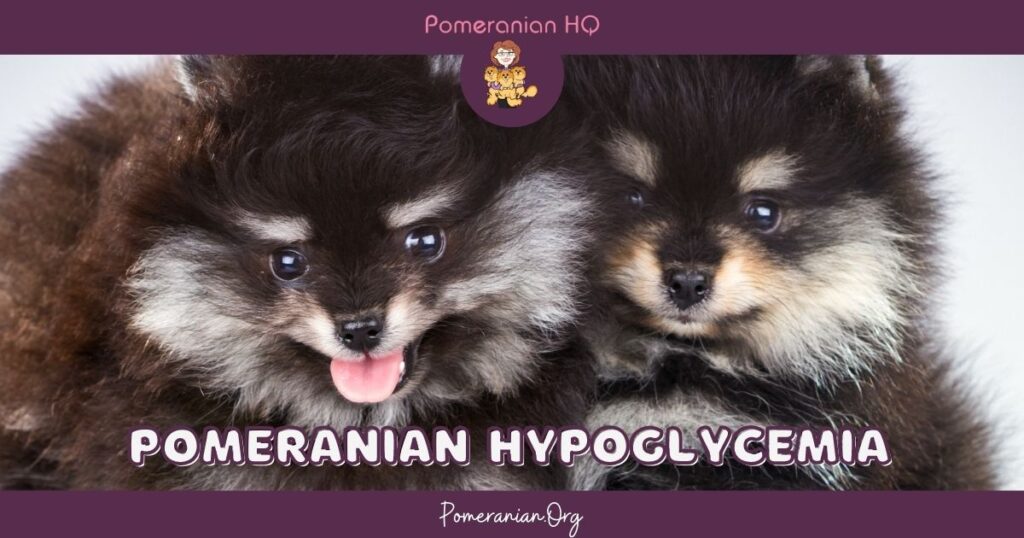
Pomeranian Hypoglycemia Treatment
Once you catch the early warning signs and treat them, your puppy should be fine in most cases. However, without such treatment, he may slip into a coma, and his heartbeat and breathing could stop. Read articles about how to do puppy CPR, so you know how to save his life if necessary.
Signs of Hypoglycemia
If the puppy’s blood sugars drop, he can’t control his body temperature. Wrap him in a blanket, use a heating pad or hot water bottle, and keep him warm until his glucose levels increase and he starts burning for energy. The warmth reduces the effects of shock.
If Pomeranian Puppy is Sleepy or Woozy
Sugar will negate these effects. You may see these signs a long time after he has eaten. Make him something yummy to eat that you know he’ll gobble up.
Puppy is Shivering or Acting Like a “Drunk.”
You’ll need to use a high sugar concentration, such as honey or pancake syrup, so it works fast. Make sure he can swallow it before feeding him a teaspoon of the sugary substance. If he seems groggy, give him some water first.
If he doesn’t lap it up, use a syringe. Make sure he’s swallowing, and then give him the syrup, which he should lick from the spoon easily.
Pom Puppy is Having Seizures and Loss of Consciousness
Follow the tips previously described. After a seizure has stopped or he has lost consciousness, you can still give him sugar. It’s not crucial that he swallows it. It can be absorbed through the mucus membranes in his mouth, which will get into his bloodstream quickly.
Honey or karo syrup are ideal products to use. Rub a little inside his gums and on his lips and watch while he recovers (5-15 minutes). Keep your puppy warm. You can take him to the vet during this time.

How to prevent Pomeranian Puppy Hypoglycaemia
Once your puppy has had one bout of hypoglycemia, you’ll understand how to monitor and treat him in the future.
You may also wish to take preventative steps, especially if your puppy is in the high-risk category.
- Include dairy in his diet. Grated cheese, yogurt, and puppy milk once daily will help him and give him a good dose of calcium for strong bones.
- Give him several meals a day. One meal may be too much to eat in one sitting. This also helps keep sugars level.
- Give him dry food for snacking between meals. Don’t give him too much, or he may gain weight but give him enough to control sugar levels.
- Give him two tablespoons of Karo syrup in his water to sip through the day. Replace his water every day to avoid bacteria growth.
There are various reasons why your puppy may suffer from hypoglycemia even when he eats well. Some relate to husbandry or the care you give him. It’s almost always possible to prevent your puppy from contracting hypoglycemia.
He may have other illnesses like hookworms, coccidia, or kennel cough. Most adult Pomeranians won’t suffer from low blood sugar level problems.
But running and playing too much without enough rest can cause low sugar even in bigger dogs. It’s the owners’ job to be mindful of their Pomeranian’s health, including eating properly and having healthy food habits.
Pomeranian Hypoglycemia Conclusion
When preventing hypoglycemia in Pomeranians, the best advice is to be diligent. Owners should know that changes in diet or exercise can cause their dog’s blood sugar levels to drop below the normal range.
Owners need to know that hypoglycemia can be prevented by simply giving their Pomeranian the food they need. We’ve outlined how you can avoid this condition, so if your pet suffers from it or has a family history, now you have more knowledge on what causes it and how to minimize its effects.
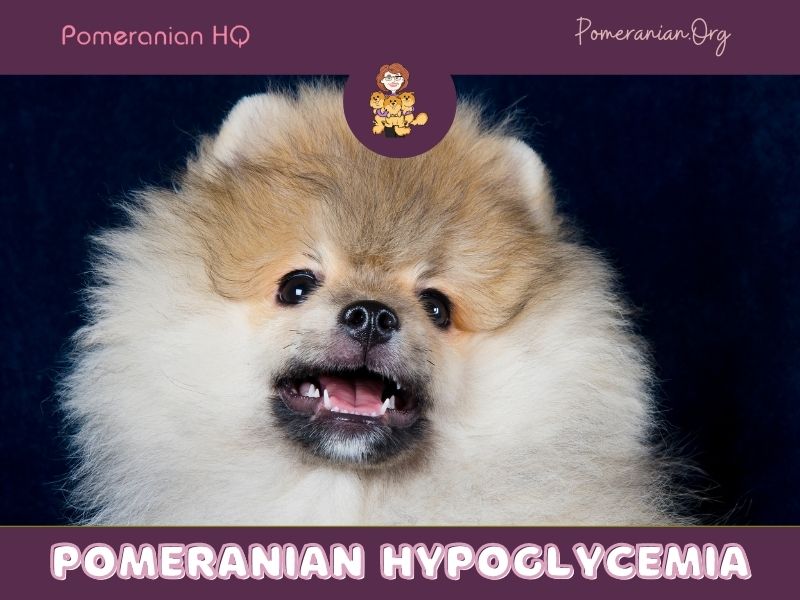
Disclaimer: The Content is not a substitute for professional veterinarian advice, diagnosis, or treatment. Always seek the advice of your veterinarian with any questions you may have regarding your dog’s medical condition. Never disregard professional advice or delay seeking it because of something you have read on ANY website.
For complete and detailed Pomeranian information, Feeding your new Pomeranian puppy, How to read dog food labels, toilet and crate training your Pomeranian, how to choose the right Pomeranian puppy for your family, socializing your Pomeranian. Download the Pomeranian Book by Pomeranian Breed Authority Denise Leo.
Copyright Pomeranian.Org. All Rights Reserved.
References and Further Reading:
[1] Denise Leo “The Pomeranian Handbook”.




